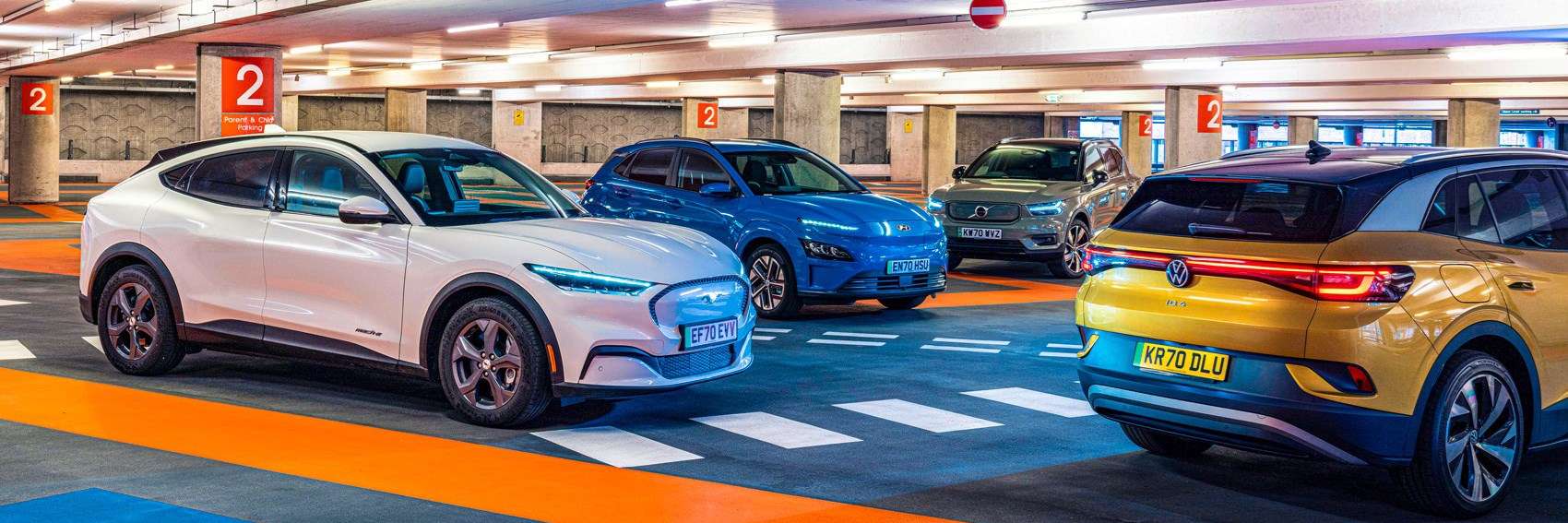
Charging at home
Most electric car drivers charge at home, and it’s easy to see why. No more queuing (or paying!) at the petrol station; simply plug in when you’re at home or overnight, to be fully charged in the morning.
A dedicated homecharge unit
If you have off-street parking, installing a dedicated homecharge unit is the fastest and most convenient way to charge your electric car. These compact units make it as easy as possible to charge: simply connect your car, switch on… and that’s it. They will also switch off once the car is fully charged. Some will even tell you how much electricity you’ve used.
You can usually choose between having either a standard Type Two socket fitted to your homecharge unit (which means using your car’s charging cable to connect) or a built-in tethered cable, which you then plug directly into your car. It’s worth remembering that these cables therefore have to be fitted with the right connector for your particular car; if you change your car in the future, you may find that this connector no longer fits.
Homecharge units are wired directly into your fuse board and so are completely safe, and do not place any additional load on other wiring or circuits. They include overload protection circuitry and are fully weatherproof, so can be located outside or wherever is most convenient.
How long does it take to charge at home?
This depends upon two things: the charging capacity of your car and its battery; and the power output of your home charge unit itself, which is usually 7 kW. As a rough guide, a 7kW unit charges 3-4 times faster than a standard 13 amp socket.
How much does it cost?
Worried about the cost of charging at home? Don’t be. Compared to petrol or diesel, electricity is cheap. Not only is charging at home a lot more convenient than filling up with petrol, it’s also a lot less expensive.
No off-street parking? No problem
We know that not everyone has access to dedicated off-street parking, which can make charging your electric car at home more difficult. However, the growing number of public charging points means that more and more residential streets are becoming part of the public charging network, making it possible for those without a drive or garage to charge their EV at home.
The Government also offers a grant to local authorities to encourage the installation of residential on-street charging points, which covers up to 75% of the cost. Simply check with your local authority whether they are participating in this scheme, or check here for the latest guidance.


